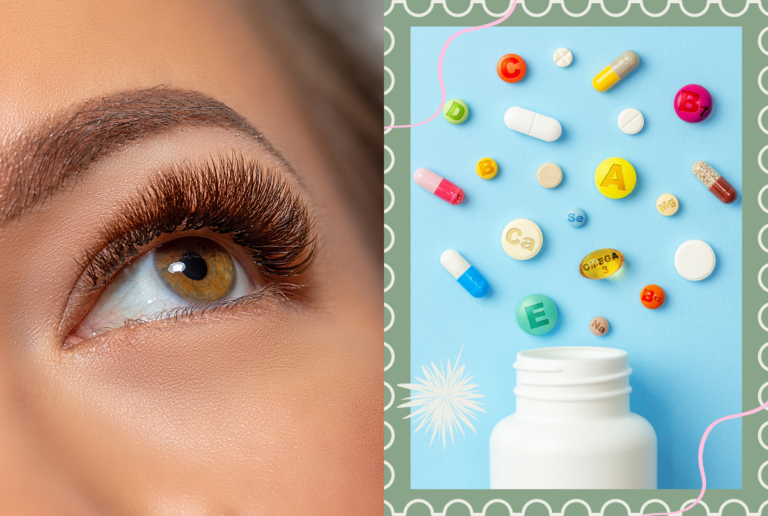Why Do Blackheads Smell?
Wondering why blackheads can sometimes have an unpleasant smell?
It turns out, this common skincare issue isn’t just about appearance; it can also come with a distinct odor that many find bothersome. The culprit behind this smell is often the combination of dead skin cells and sebum that clog pores, creating an ideal environment for bacteria to thrive and produce odorous compounds.
Delving into the reasons behind this can help you understand how to tackle and prevent it effectively.
Well, we’ll be going over:
- What exactly are blackheads and how do they form?
- How does the presence of bacteria contribute to the smell of blackheads?
- What steps can you take to prevent and treat smelly blackheads and maintain clear, fresh skin?
Let’s dive in.

What Are Blackheads?
Blackheads, medically known as open comedones, are a common skin issue you’ve likely encountered. They appear as small, dark spots primarily on the face, particularly the nose, chin, and forehead. But what exactly causes them? At their core, blackheads result from clogged hair follicles. Each follicle contains one hair and a sebaceous gland that produces oil, known as sebum, which helps keep your skin soft.
When dead skin cells and oils collect in the opening of the skin follicle, a bump called a comedo is formed. If the skin over the bump stays closed, it’s known as a whitehead. But when the skin over the bump opens, exposure to air causes it to look black, thus forming a blackhead.
Understanding that blackheads are not dirt trapped in your skin is crucial. Instead, they’re an accumulation of your own skin’s oils and dead skin cells. The dark color results from the oxidation of melanin, the pigment in sebum and skin cells, when it’s exposed to air. This knowledge is essential in tackling the issue effectively and keeping your skin looking fresh.
How Are Blackheads Formed?
Blackheads originate when your skin’s natural oil, sebum, mixes with dead skin cells. This mixture clogs pores, laying the groundwork for blackheads. Normally, sebum helps keep your skin hydrated, but when it accumulates, it becomes a magnet for dead skin cells.
The pores in your skin aren’t just passageways for sebum; they also serve as a barrier against environmental pollutants. However, when clogged, this protective mechanism fails. The exposure of this clogged material to air leads to oxidation, turning it black and creating the characteristic appearance of blackheads.
Understanding the process of how blackheads form is crucial. It’s not just about what’s visible on the surface, but also about what happens deep within your pores. Keeping these clear is key to preventing blackheads and maintaining healthy skin.
The Role of Bacteria in the Smell
When delving into why blackheads can emit an unpleasant odor, it’s crucial to understand the role of bacteria. Your skin is home to a vast community of bacteria, part of your body’s natural defense mechanism. However, when blackheads form, they create an ideal environment for certain bacteria to thrive.
These bacteria feed on the mixture of sebum and dead skin cells trapped within the pore. As they metabolize these substances, they produce volatile compounds. It’s these compounds that are responsible for the characteristic smell associated with blackheads.
What’s fascinating is the type of bacteria found in blackheads can vary, influencing the specific scent emitted. While the concept of bacteria contributing to body odors is not new, the direct link between them and the scent of blackheads highlights the importance of maintaining a healthy skincare routine to manage bacteria on the skin’s surface.
Factors Affecting the Odor of Blackheads
There are several key factors that influence the odor emanating from blackheads. Understanding these can help you better manage and prevent offensive smells.
Firstly, the type of bacteria inhabiting your pores plays a crucial role. Different bacteria produce various compounds, affecting the smell’s intensity and quality. Secondly, the amount of sebum and dead skin cells trapped in your pores directly impacts odor strength. A higher accumulation offers more ‘food’ for bacteria, leading to stronger smells.
Moreover, your skin’s pH level can either inhibit or encourage the growth of certain bacteria. A balanced skin pH tends to ward off odor-causing bacteria, whereas imbalances favor their proliferation. Lastly, environmental factors such as humidity and pollution can intensify the smell by increasing sweat and dirt on the skin, giving bacteria more to metabolize.
By addressing these factors, you can significantly reduce the chances of developing a noticeable odor from blackheads. Keeping your skin clean and maintaining a balanced skincare routine are key steps towards healthier, odor-free skin.
Tips to Prevent and Treat Smelly Blackheads
Preventing and treating smelly blackheads starts with a consistent skincare routine aimed at keeping your pores clear. Gentle exfoliation is key; it helps remove dead skin cells and prevent them from mixing with sebum to form blackheads. Opt for products with salicylic acid, known for its ability to penetrate pores and clear out clogs.
Hydration is another crucial step. It may seem counterintuitive, but adequately hydrated skin produces less oil, reducing the chances of sebum build-up in your pores. Look for non-comedogenic moisturizers, which hydrate without clogging pores.
In addition to daily skincare, regular facial cleanings by a professional can provide a deeper cleanse, helping to remove blackheads and potentially smelly bacteria.
Lastly, pay attention to your diet and hydration levels. Foods high in sugar and dairy can trigger oil production, while drinking plenty of water helps to flush out toxins that could contribute to blackhead formation.
Conclusion
Understanding why blackheads smell is key to tackling them effectively. It’s all about the mix of sebum, dead skin cells, and bacteria that leads to that distinctive odor. Keeping your skin clean and your pores clear is your first line of defense.
Remember, a solid skincare routine that includes exfoliation and hydration can make all the difference. Don’t underestimate the power of regular professional cleanings and a balanced diet too.
By taking these steps, you’re not just addressing the smell but also preventing blackheads from forming in the first place. Keep up with your skincare regimen and you’ll keep those smelly blackheads at bay.






